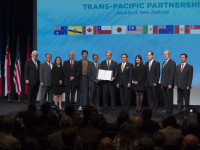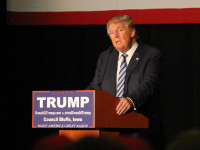The Eli Lilly claim against Canada for hundreds of millions due to a court decision involving patent utility has attracted considerable attention with fears that the case foreshadows many more corporate lawsuits if the Trans Pacific Partnership becomes a reality. While the Canadian government has raised doubts about the independence of the Canadian Chamber of Commerce intervention in the case, the government must be a bit confused on where the U.S. stands on the issue. Yesterday, the U.S. Trade Representative issued its 2016 report on foreign trade barriers and stated the following on the case:
With respect to pharmaceuticals, the United States continues to have serious concerns about the impact of the patent utility requirements that Canadian courts have adopted.
That is consistent with the Eli Lilly argument, yet last month the U.S. State Department provided its own submission in the case. The U.S. government appears to undermine USTR arguments, seemingly siding with the Canada on the issue. The U.S. submission states each country has the right to determine how it implements the utility requirement, the possibility of revocation of patent rights, and for its patent laws to evolve:












